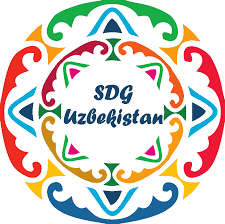The Sustainable Development Goals (SDGs), adopted by the United Nations in 2015, represent a universal call to action to achieve peace, well-being, and sustainability for humanity and the planet by 2030. These 17 interrelated goals address a wide range of global social, economic, and environmental challenges.
Uzbekistan has undertaken comprehensive reforms and achieved significant milestones in implementing the SDGs, focusing on improving living standards and fostering a just, stable society. The nation’s approach integrates economic, social, and environmental dimensions of development.
National Framework for Achieving the SDGs
A robust mechanism for achieving the SDGs has been established in Uzbekistan, supported by legal and institutional reforms. Recognizing its unique characteristics, Uzbekistan identified 16 of the 17 SDGs as priorities, excluding Goal 14 (“Life Below Water”) due to the country’s landlocked geography.
By Cabinet of Ministers resolutions in 2018 and 2022, Uzbekistan approved 16 national goals, 126 objectives, and 190 indicators aligned with the SDGs. These efforts are embedded in the Constitution, over 360 laws, and various regulations. A Coordination Council, chaired by the Deputy Prime Minister, oversees national SDG implementation, supported by the Parliamentary Commission, which ensures effective monitoring and legislative alignment.
The Strategy of New Uzbekistan – Synergy with SDGs
The “Strategy of New Uzbekistan – 2030” is harmonized with the UN SDGs, serving as a national action program. Key areas of synergy include:
- Unified Goals: The strategy mirrors SDG priorities in economic growth, social development, and environmental stability while addressing gender equality, education, health care, and human rights.
- Social Orientation: Both frameworks prioritize human capital, poverty reduction, and social justice, emphasizing investments in education, health care, and social protection.
- Economic Stability: The strategy focuses on job creation, economic competitiveness, and innovation, underpinned by sustainable resource use.
- Environmental Sustainability: Goals include developing a green economy, expanding renewable energy, and addressing climate challenges.
- Global Partnerships: The strategy strengthens international cooperation, attracts foreign investment, and fosters knowledge exchange.
Financial Mobilization for Sustainable Development
Achieving the SDGs demands significant financial resources. According to the World Bank, global SDG implementation requires $2-4 trillion annually. In Uzbekistan, an additional $6 billion per year is needed for national SDGs. To address this, a Comprehensive National Financing Strategy is under development, focusing on:
- Enhancing public and private financing mechanisms.
- Promoting innovative instruments such as green finance, diaspora bonds, and SDG-specific bonds.
- Revising tax benefits and preferences to stimulate entrepreneurship and targeted investments.
Parliament plays a crucial role by aligning budget policies with development goals. For instance, 69% of the 2024 state budget was allocated to SDG-related initiatives, projected to rise to 72% in 2025.
Voluntary National Reviews and International Recognition
Uzbekistan’s commitment to the SDGs is evident through its Voluntary National Reviews (VNRs), presented at UN forums in 2020 and 2023. These reviews showcase progress, highlight challenges, and ensure accountability. Uzbekistan’s efforts have garnered international recognition, underscored by the organization of the Global Forum on Inter-Parliamentary Cooperation in Achieving the SDGs.
The first forum in 2021 resulted in the Bukhara Declaration, emphasizing parliamentary roles in sustainable development. Building on this, the 2023 forum in Tashkent culminated in the Tashkent Communiqué, fostering global inter-parliamentary cooperation.
Future Directions for Sustainable Development
Uzbekistan is committed to advancing its sustainable development agenda by:
- Integrating SDGs into National Policies: Embedding SDG principles across state, industry, and regional programs.
- Strengthening Parliamentary Oversight: Enhancing legislative frameworks and ensuring accountability through regular government reviews.
- Improving Monitoring Systems: Establishing SMART indicators and leveraging digital technologies for progress tracking.
- Expanding Financial Mechanisms: Increasing public funding and private sector involvement, introducing green bonds, and fostering public-private partnerships.
- Fostering Social Partnerships: Encouraging civil society, NGOs, and media participation in SDG implementation.
- Advancing Research and Innovation: Supporting initiatives in digitalization, AI, green technologies, and other innovations.
Conclusion
Uzbekistan’s efforts reflect a deep commitment to the 2030 Agenda. Through legislative support, financial mobilization, and international collaboration, the nation is creating a sustainable and inclusive economy, advancing social progress, and protecting the environment. These achievements underscore the importance of collective action, innovation, and global partnership in building a resilient future.
Author:K.B. Tursunov,Deputy Chairman, Committee of the Oliy Majlis Senate for Budget and Economic Matters
